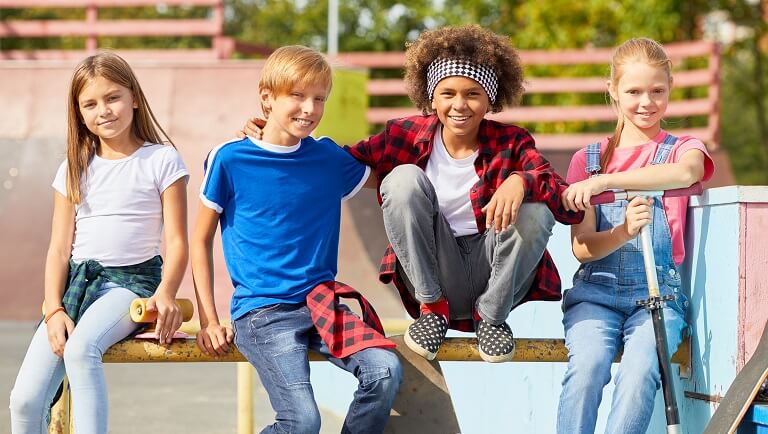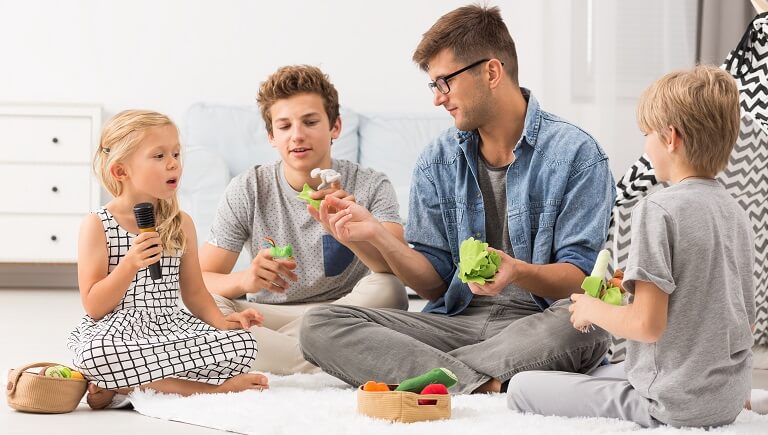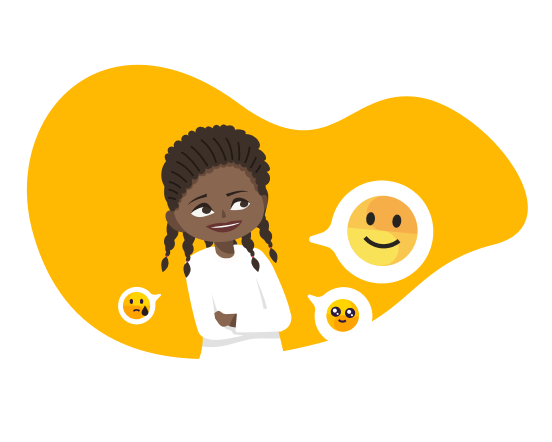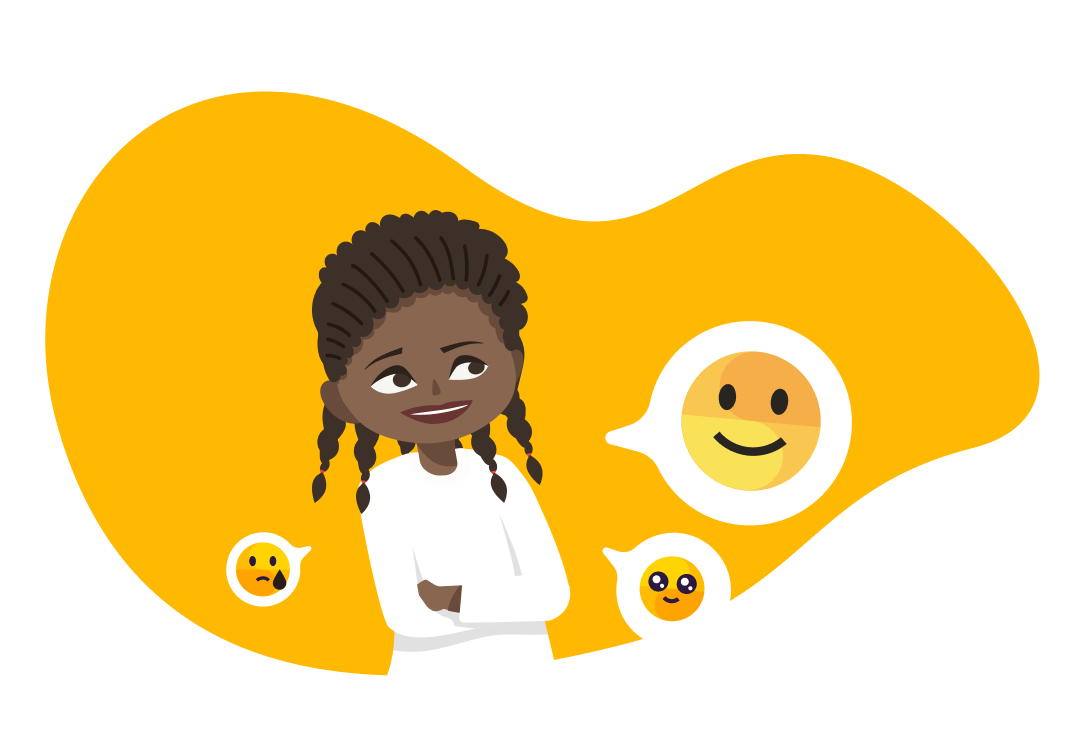
Building communication skills in children
It is difficult to imagine modern life without interpersonal interactions. Unless you live in a cave and consider yourself a hermit, you probably feel that communication requires a special approach in certain situations. Successful interaction depends on communication competence, cultural behavior, and, of course, personal qualities. That is why the development of communication skills is required of every person.
The good news is that these skills can be improved with the help of powerful techniques, persistence, and practice, especially if you start to lay them down in childhood. It is a well-known fact that children’s brains absorb information like a sponge. And with our tips and fun games, your child will master communication skills in no time!
What are communication skills, and why do we need them?
Communication skills are the ability to communicate effectively. These usually include the ease of making contact, the ability to maintain a conversation, negotiate and insist on one’s rights and achieve one’s goals through communication.
Moreover, good communication skills help to:
- establish a trusting relationship with family and friends, improve mutual understanding;
- better interact with others, make the right connections, and get acquainted easily;
- strike up and maintain a conversation in any company, avoiding awkward silences;
- avoid conflicts and find common ground with others.
A person may need to have especially developed communicative skills when choosing certain professions. For example, in such occupations as pedagogy, journalism, psychology, business, and management, such strong communication skills are a must:
- to negotiate effectively,
- to speak in front of an audience,
- to find a common language with the interlocutor,
- to sell goods or services advantageously.
Why is it important to develop communication skills in childhood?
Between the age of 3 to 7 years, norms of behavior entrench in a child’s mindset. He becomes able to assess his speaking skills. Low communicative competence of preschool children leads to interpersonal conflicts and a child’s feeling of alienation, isolation, and uselessness. That is why one of the most important skills that you need to instill in your child from an early age is the skill of communication.

The ability to communicate also affects the rest of a child’s life. In the future, it will help him build good relationships in college, at work, and in his personal life. Developed communicative skills and a tolerant attitude toward society provide inner confidence, the ability to independently find a solution in any life situation which is comfortable for oneself and not a detriment to others.
Children with developed communicative skills more often than other kids identify themselves as representatives of human civilization or their country. Their values are usually more adequate to universal ones: like the desire for peace, anti-war feelings. Their perception of the world is usually optimistic and joyful. They often show tolerance and friendliness towards their peers of other nationalities, religions, etc.
What are the fundamental communication skills any child should have?
Psychological abilities to communicate are individual. Some people find it easier to communicate. Others experience difficulties and discomfort. Of course, it is necessary to take into account the innate qualities of the child. However, it is each parent’s responsibility:
- to teach the child to express his thoughts, feelings, and emotions openly and calmly, without raising his voice;
- correctly perceive the information from people around to exchange thoughts, ideas, experiences with them.
The goal is to pay attention to these three important components of communication:
- Parents need to motivate their children to communicate with other people. This is the basis for developing communication skills because, without the desire to interact with others, nothing else will work.
- Parents need to explain to the kids the rules of communication. What is acceptable and what is not, how to keep up the conversation, how to behave in conflict situations, defend your position.
- This part has to do with the actual skills: listening to the interlocutor and the ability to strike an interest. Moreover, improvement of communication skills is inseparable from a person’s psychological maturation. So it is important:
- to form in children social responsibility;
- to foster in them an interest in the surrounding people;
- to develop a sense of understanding, empathy, and goodwill;
- to teach them the right gestures and mimics;
- to develop skills of self-control during communication, for instance, not to interrupt or make unnecessary arguments;
- to learn to speak in a dialogue mode;
- to teach to accept the interlocutor’s point of view;
- to argue reasonably;
- to avoid negative topics and interpreting, giving negative suggestion;
- being able to make their intentions clear to an interlocutor;
- to stimulate creative ways to express themselves;
- to correct negative character traits and behavior.
What are the signs that a child has communication problems?
The first sign that your kid has communication problems is his lack of interest in other kids, unwillingness to play or interact with them. While an adult can motivate himself to interface with people, a child is not yet able to do so. A parent should pay attention if a child:
- complains about the lack of friends and reluctance of peers to communicate with him;
- does not want to go to a kindergarten, school, or his sports club;
- does not talk about his classmates and buddies;
- prefers to stay at home all day reading, playing computer games, watching TV, etc.
Before you intervene, you need to get to the bottom of the causes of this disharmony. If a child shows no interest in communicating with peers, it can be caused by several reasons.
Physiological reasons:
- brain dysfunction,
- hearing and speech impairment,
- hereditary diseases.
Psychological reasons:
- Problems in the family. Psychologists have long noted that the better the child’s relationship with their parents, the easier it is for them to find common ground with their peers. Excessive custody and overprotection of children by parents, restriction of communications with other kids, a ban on inviting friends into the house, absence of conditions for the child’s self-assertion, and denial of his right to act independently can lead to psychological reluctance to socialize with peers.
- Unsuccessful experience with peers, i.e., emotional trauma. Because of that, a child can display an aggressive attitude or hide the problems under bravado and jesting, withdraw, and become depressed.
- A child may also have problems making friends due to his personality traits or some external features: heightened emotionality, shyness, obesity, unpleasant facial features, developmental peculiarities. And since kids can be rather cruel creatures, the child may fear that he will be expelled from the group.
Due to the excessive intellectualization of education and the fact that technology has spread to many aspects of our life, children have become less communicative not only with adults but also with each other. They simply do not know how to meet each other, date, show complicity and empathy, or express support. It leads to the avoidance of contact with peers, frequent conflicts and fights, unwillingness to reckon with the opinion or desire of another.
9 tips to boost your child’s communication skills
For children, imitating adults is a basic way of mastering speech communication. Above all, the family forms the social and communicative competence of the child. So it is necessary to present a good speaking model. Then, thanks to the use of the following techniques, it is possible to significantly improve the degree of interaction of children with others.
- Allow the child to communicate with friends and peers: encourage him to join a class or a hobby club, arrange children’s hangouts at home, visit other families with kids.
- Provide an opportunity for kids to act independently, to show initiative. Feeling confident and supported helps to open up to new people.
- Try to spend more quality time with the child, like playing, having fun, acting as an equal with him.
- If the child is withdrawn, try to initiate a dialogue yourself. Take into account your kid’s interests. If he is not interested in the topic of conversation, most likely, he will be reluctant to talk about it. Give him time to process what he wants to say, do not interrupt him, or overcorrect his mistakes. Show him how the dialogue is built: take turns, use eye contact and body language, show genuine interest in his story.
- Ask your child’s opinion and use a daily activity like cooking or driving to start conversations or initiate small talks. What do you think about it? Do you like it or not? Why? What would you do if you were in the position? This develops the ability to make and express decisions and analyze the actions of others. Also, it teaches making conversation adequate to what is going on around.
- Make up stories together. Start a story and ask your kid to finish it. This will help him learn to express his thoughts clearly, as well as build coherent sentences.
- Use pictures and photographs. Invite your child to tell you what is happening in the picture. This exercise develops the ability to express your thoughts competently, structure the story, and talk about what is happening interestingly. Al this makes you a good conversationalist.
- Do not forget to ask him about his day, not only casually but with clarifying questions. Explain to him that this is a common way to greet people. This will teach him to be polite and more open to others.
- Practice reading together. This will help your child understand the story, enrich his vocabulary, and develop emotional intelligence. As you read the story, interrupt for analysis: why did the main character act this way, why was he angry, etc. This will teach him to understand the motivations behind other people’s actions and develop the ability to feel emotions and respond accordingly. The best conversationalists are those who understand the feelings of others.
8 fun games that will help your kid become a better communicator

Every kid likes to play. Games allow them to socialize, show leadership skills, be creative, and learn to be a part of a team. Therefore, you can use games that develop a child’s communication skills and arouse genuine interest at the same time. Here are some of them.
Improvisation
This game is suitable for children of all ages. Choose a topic that your child is familiar with or just likes, and ask him to talk about it for a couple of minutes. After that, make it harder by choosing a different topic and increasing the time up to 3−4 minutes.
Compliments
Take turns telling each other compliments without repeating them. You have to look directly in the eyes, and you need to thank for every fair word you receive. Whoever can think of more compliments wins.
Make me laugh!
You make a serious face, and your kid has to make you laugh by using mimics, poses, and signs. Then you swap roles. This is a great way to teach a child the importance of body language and train him to use it.
20 Questions
One of the kids stands in the middle of a circle and thinks of a certain place, a thing, or a famous personality. The rest of the group sitting in the circle has to guess what he has in mind. They can only ask 20 questions, and the answer can be yes or no. If nobody guesses, the child in the center wins.
Role-play
Make cards with different activities keeping in mind the age of children involved. Let the kid pull out a card and ask him to portray whatever is on the card. Cards can include:
- playing with a friend and sharing toys;
- arguing with a friend;
- pretending to be someone;
- being scared of something.
This will help him learn to look at a situation from other points of view and understand people better.
Hands and Feet
When you say “hands”, children have to make movements with their hands. When you say “feet”, they move their feet. It is important not to judge their activity and let them freely do whatever they wish. It can be chaotic moves, dancing, or simple physical exercises. Each participant chooses himself how to move. Creative activity liberates children, helps them overcome shyness, fear of judgment, develops trust in others and an aesthetic sense.
Intellectual Mosaic
You divide a fairy tale or a historical event among the children. Each child gets his cluster of the story without knowing the rest. Then each participant tells his part of that story. As a result, everybody gets a complete picture. After that, the whole group takes part in a test to see who remembered most of the details. This game improves interpersonal communication ability and team-work skills.
Costume party
Who said you need to wait for Halloween to dress up? Arrange an event where children can dress up as any character. With the help of a costume, mask, make-up, and, most importantly, behavior, they acquire a new role. This is the simplest way to eliminate withdrawal and excessive introversion. The game allows kids to free themselves from feelings and emotions that they have been holding inside, express themselves and gain inner freedom.
Remember that it is a big mistake to pretend that you have fun with your kids. Children keenly sense insincerity and lose trust in those around them. If you feel like taking time off instead of self-abuse, arrange for kids to play with each other: invite their friends over, sign them up for clubs and other activities.
Children who do not know how to communicate with peers feel vulnerable. The child’s ability to listen, understand and respect others, respond appropriately and politely to comments and requests from adults are inseparable elements of his full personal development and mental health.

new engaging articles



